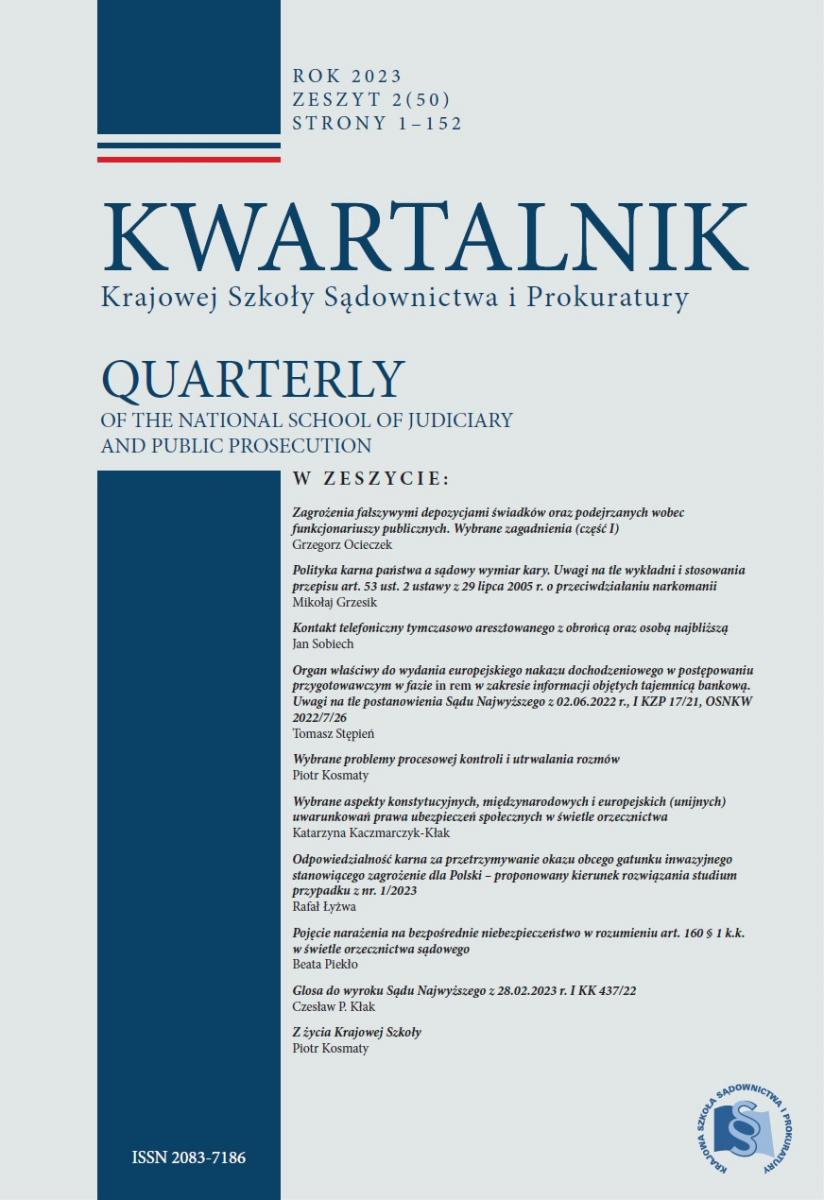Glosa do postanowienia Sądu Najwyższego z dnia 09.03.2022 r., I KZP 8/21
| Kwartalnik Krajowej Szkoły Sądownictwa i Prokuratury * 2023* tom 52* zeszyt 4* s. 105-116 * ISSN 2083-7186 Glosa do postanowienia Sądu Najwyższego z dnia 09.03.2022 r., I KZP 8/21 Commentary to the Decision of the Supreme Court of 9 March 2022 (I KZP 8/21)
Jan Kluza, doktor nauk prawnych, asesor sądowy, Zastępca Przewodniczącego II Wydziału Karnego, Sąd Rejonowy w Kielcach, absolwent studiów doktoranckich w Katedrze Postępowania Karnego UJ, https://orcid.org/0000-0002-0929-6093
https://doi.org/10.53024/6.4.52.2023
URL: https://www.kssip.gov.pl/pobierz_plik/jan_kluza
SUMMARY: The commentary concerns the recent ruling of the Supreme Court on the possibility of recognizing a judgment passed after a hearing to be promulgated based on Article 100 § 1a of the Code of Criminal Procedure. In its decision the Supreme Court ruled that a judgment passed after a hearing does not constitute a judgment unless it has been promulgated under the applicable provisions of the Code of Criminal Procedure (sententia non existens) since a verbal promulgation is the constitutional element of issuing a judgment. At the same time, however, the Supreme Court allowed judgments passed in open court, under Article 100 § 1a of the Code of Criminal Procedure, to be considered promulgated. According to the view taken in this commentary, the position of the Supreme Court is correct, however, it prompts further amendments to the Code of Criminal Procedure. Key words: promulgation of a judgment, public hearing, right to have a matter adjudicated by a court Bibliographic Citation: KLUZA, J. Glosa do postanowienia Sądu Najwyższego z dnia 09.03.2022 r., I KZP 8/21, Kwartalnik Krajowej Szkoły Sądownictwa i Prokuratury. 2023, t. 52, z. 4, s. 105-116. ISSN 2083-7186. DOI: 10.53024/6.4.52.2023 |
|




